Services
Professional Development Services
Whether your school or school system is high-performing, on a trajectory of improved performance, motivated to demonstrate gains precipitously, or characterized by pockets of underperformance, Educational Epiphany is passionate in creating meaning on Early Learning and Leadership Development to help close the achievement gap between and within student groups in no time at all—and we have the data to prove it. With exposure to our research-driven model and tools for school improvement, your team—in partnership with Educational Epiphany consultants—will be able to promote double-digit gains by taking advantage of Educational Leadership and emergent literacy among all student groups in one school year. We will customize a Professional Development plan and Resource Guides for you, then come to your school/district to develop and implement your Teaching and Learning plan strategically.
Contact us for pricing and customization options.
Educational Epiphany’s professional development workshops, virtual training, and coaching services provide educators at all levels of your organization with access to our high-impact, multitiered approach to improving student outcomes across all content areas. Students will learn reading and writing techniques that are common across disciplines while using content area literacy strategies.
Our professional development workshops and services are delivered through:
- Virtual coaching and training as well as in-person sessions
- Job-embedded coaching
- Site-based professional learning communities
- Content-specific workshop series
- In-class demonstration lessons
- After-school sessions and workshops
- Keynotes
- Breakout sessions
Workshops and services are strategically aligned to address the Science of Reading with the following offerings:
- Understanding the Art and Science of Teaching the 44 Phonemes, 7 Categories, 144 Graphemes, Dolch words, Syllabication, Fry Words, and Encoding
- Understanding the Art and Science of Teaching and Assessing Tier I Words and the Impact of Tier I Word Knowledge on Reading Fluency and Comprehension
- Understanding the Art and Science of Teaching and Assessing Tier II
- Words and the Impact on Early and Continuing Literacy Development
- Putting It All Together/Integrating Comprehensive Literacy Among Early Readers in the K–12 Classroom Across Disciplines
- Understanding the Art and Science of Teaching and Assessing Student Ability to Create Meaning and Improve Academic Vocabulary through Access to the 30 Most Common Prefixes, Roots, and Suffixes and the Transformational Impact on Early and Continuing Literacy Development
Aligning Curriculum, Instruction, and Assessment
- Composing Higher-Order Performance-Based Objectives
- Using Relevant Data to Drive Decision Making
- Developing Action Plans for Teaching in the Tested Content Areas
- Developing a Balanced Assessment System (School-wide or District-wide)
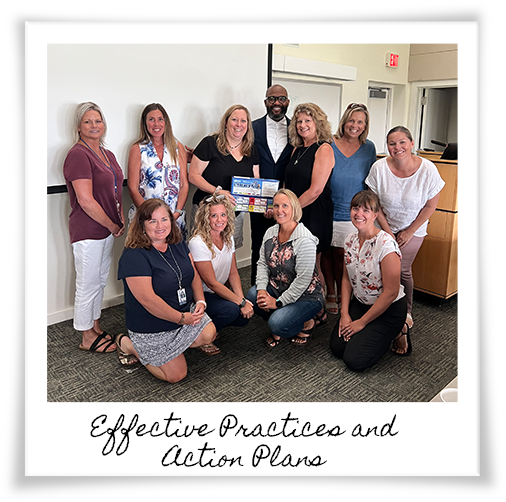
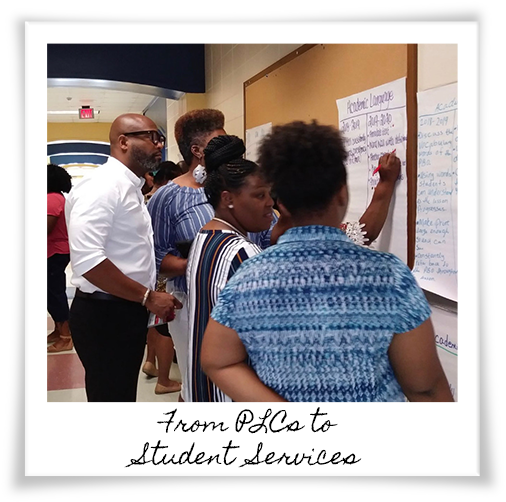
District and School Improvement
- Leveraging District-Wide/School-Wide Instructional Practices
- Restructuring the Student Services
- Engendering Long-Term Planning and Backward Mapping
- Building High-Functioning Professional Learning Communities
- Strategic Planning
Dynamic Instructional Leadership
- Building a Culture of Instruction
- Developing and Implementing Data Protocols to Drive Decision Making
- Long-Term Instructional Planning
- Building High-Functioning Professional Learning Communities
- Maximizing Professional Learning Communities
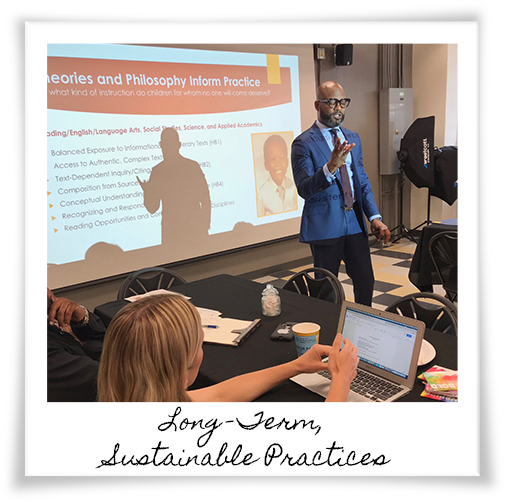
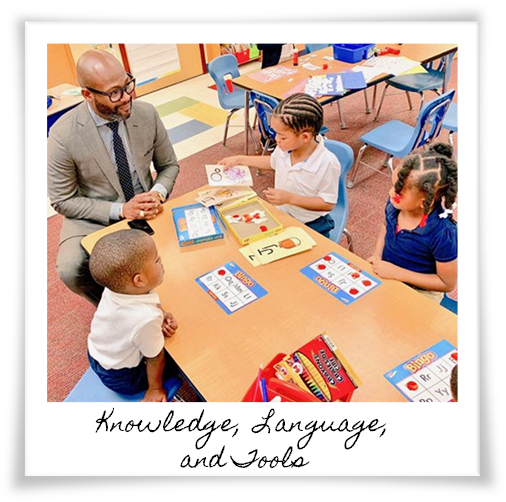
Improving Tier I Instruction
- Understanding the Standards (With Supporting Instructional Resources)
- Ensuring Gains Among English Language Learners
- Promoting Common Instructional Language Across Content Areas
- Using Manipulatives to Teach Abstract Concepts in Mathematics
- The Gradual Release Model and Lesson Planning
- Developing Worthwhile Mathematical Tasks Through Exceptional Math Instruction
- Meeting the Demands of State Standards for Writing
- Unraveling the State Standards for Mathematics
- Teaching Disciplinary Literacy in Science, Social Studies, and Technical Subject Areas
- Close Reading/Text Dependent Inquiry
- Qualifying Texts to Meet the Demands of Complexity
Special Education
- Strengthening the Special Education Department (Including Strengthening Early Literacy Skills)
- Meeting the Complex Needs of Students with IEPs (Including High-Quality Instruction and Resources That Support Digital Literacy)
- Closing the Reading Gap by Enhancing Reading Proficiency, Phonemic Awareness, and All Language-Based Competencies Included in English Language Arts (ELA)
- Leveraging the Six Co-Teaching Models to Promote Literacy Development and Improve the Student’s Foundational Skills


Systematic Assessment of Student Progress
- Developing Action Plans for the Tested Content Areas/Short Cycle Assessments
- Leveraging Interventions and Intervention Data
- Assistant Principals as Instructional Leaders
- Reteaching That Matters
- Leveraging Formative Assessments
- Conducting Calibration Walk-Throughs
Universal Teacher Expectations
- Conducting Meaningful Informal and Formal Observations
- Leveraging Small-Group Instruction
- Setting Up Model Classrooms
- Leveraging Demonstration Lessons
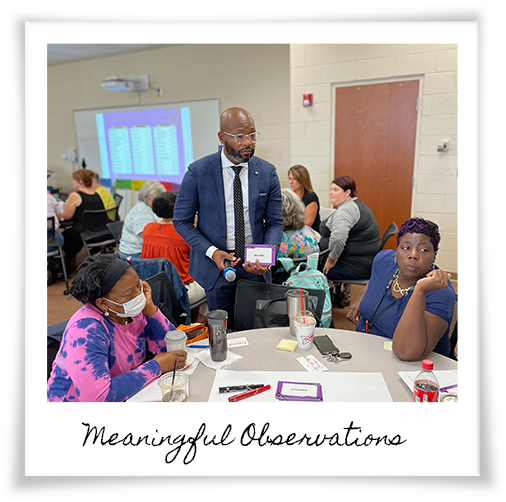
“Professional development should meet two standards. It should be professional, and participants should get developed (learn something that they didn’t know they didn’t know).”
Donyall D. Dickey, Ed.D.
Leadership Coaching
Educational Epiphany offers a wide variety of high-impact workshops for boards, superintendents, chief-level officers, assistant superintendents, directors, principal supervisors, principals, assistant principals, teachers, and professional associations. As a dedicated education company, we also provide coaching for districts looking to develop or expand their plans for effectively engaging with parents, families, and communities.
Our leadership coaching services give your leadership team members access to:
- Strategies for conceptualizing, formulating, implementing, and monitoring your strategic plan
- Didactic support for your goals, plans, and cost-benefit analyses
Contact us for pricing and customization options.
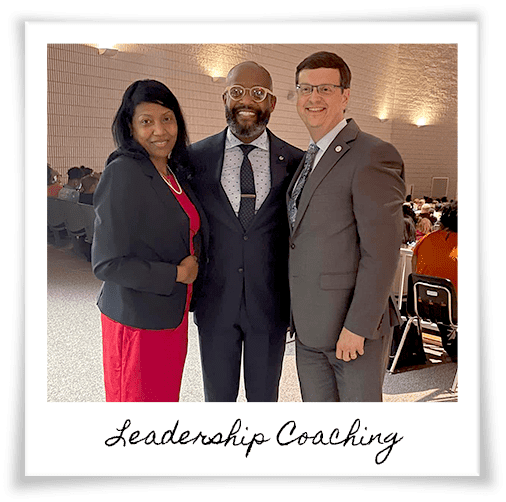
Participants are led in an in-depth analysis of the district’s current strategic plan with attention to its structure and alignment to the superintendent’s evaluation.
Participants will engage in the multidimensional process of constructing a viable, student-centered strategic plan, including (1) student outcome data analysis, (2) internal analysis, (3) stakeholder input, (4) mission and vision setting, (5) guiding principles, (6) strategic goals with correlate objectives, strategies, and action plans, (7) cost-benefit analyses, (8) community communication planning, (9) branding, (10) board updates, and (11) continuous improvement.
Participants will learn about the importance of addressing the blurred line between the “what” (board governance) and the “how” (superintendent and daily operations) of district leadership.
Participants will explore the process of assessing the extent to which the budget (e.g., general fund, federal dollars, special revenue, capital programs, student nutrition, and debt services) is aligned to the district’s strategic initiatives.
Participants will investigate the tension of current district policies and regulations with the district’s current strategic plan, current needs of the organization, and projected needs.
Participants will learn about the process of linking student and organizational outcomes of every employee to the initiatives that comprise the district’s long-term strategic plan where appropriate, including evaluating organizational structures and systems designed to monitor progress, the establishment of realistic benchmarks, and milestones for each component of the plan.
“When we level set on the theories that drive our beliefs about teaching and learning, our daily practices will calibrate by default.”
Donyall D. Dickey, Ed.D.
Auditing Services
Educational Epiphany offers Auditing Services consisting of a deep dive into your school’s or district’s two-day audits of your existing curriculum for all content areas for Grades K–12. Dr. Dickey and the team of Educational Epiphany content specialists will ensure that each audit is aligned with your instructional goals for ELA, Mathematics, Science, and/or Social Studies instruction and student outcomes. When each audit is completed, Dr. Dickey and our content specialists will provide targeted recommendations to the central office and/or building leaders for the next steps, depending on your specific needs and scope of work.
Contact us for pricing and customization options.
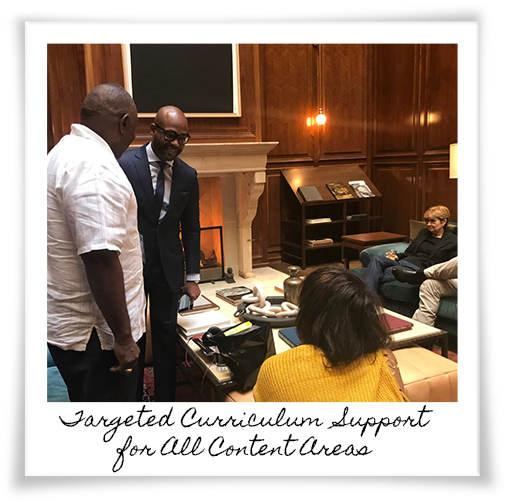
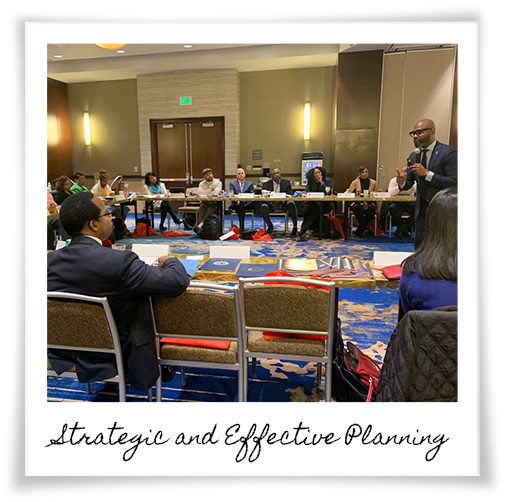
Board and Cabinet Retreats
Ranging from one-day retreats to weeklong strategic planning, Educational Epiphany’s board and cabinet retreats are designed to assist you and your board members with the complex process of conceptualizing, formulating, implementing, and monitoring your district-wide strategic plan, complete with goals, action plans, and cost-benefit analyses. Our goal is to engage in strategic and effective planning with you, paying close attention to your specific needs, organizational culture, and local context.
Educational Epiphany’s board retreat topics and areas of focus include (but are not limited to):
- Distinguishing governance and daily operations for the benefit of organizational effectiveness
- Analysis of current strategic plan
- Exploring the elements of student-centered strategic plans
- Investigating policy and regulation ramifications
- Linking the system of accountability and evaluation to the district’s strategic plan
- Fiduciary responsibility and backward mapping the annual budget to the strategic plan
Contact us for pricing and customization options.
